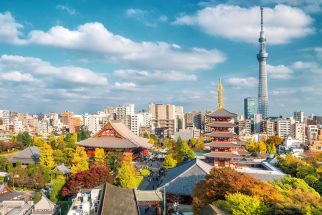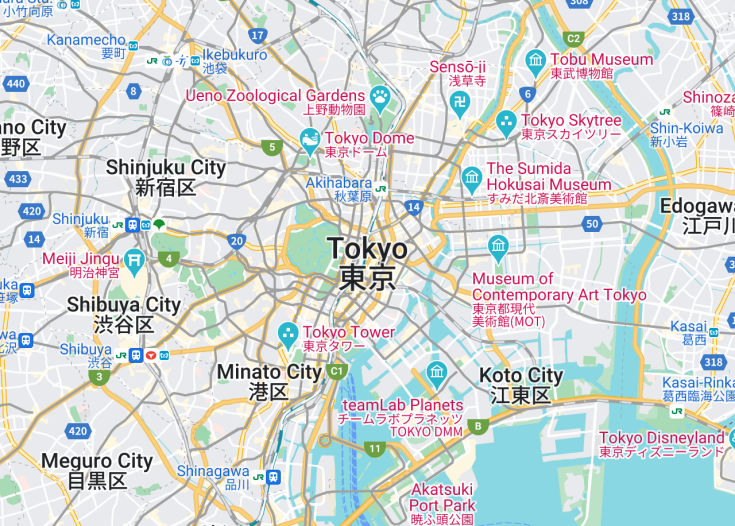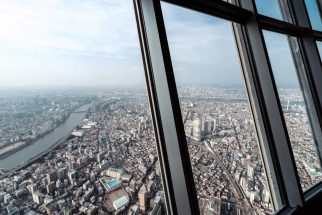Tokyo, like many of the great modern metropolises, is a colossus of creativity that it is always inevitably aimed at becoming, recreating and resolving itself. It is pure chaos. It is a blend of energy that never has time to stop and think.
Four days in Tokyo is enough time to see the city and make one day trip out of the city. The best time to stay in Tokyo are spring (with the cherry blossom and related festivities) and autumn, which offers clear days and cool temperatures ideal for hiking. In general, it is advisable to avoid the heat and rains of summer.
For foreigners, a vacation in Tokyo is expected to be expensive; the cost of living in the Japanese capital is far above the average for European capitals. Speaking English is certainly essential to have contact with the Japanese. Here people are very formal and reserved, they love bows and etiquette (even in dress).
Top things to do & see in Tokyo
Select the following sights and activities to discover best tickets and tours available in Tokyo.
The city of Tokyo
| Country | Japan |
| Region | Kantō |
| Time in Tokyo | UTC+09:00 (Japan Standard Time) |
| Language spoken | Japanese |
| Currency | Japanese yen |
| Religion |
Shintoism Buddhism |
| Airports |
Narita (NRT) 66 km east of central Tokyo Haneda (HND) |
Tokyo is both the cradle of the Japanese production machine and the heir to the the old city of Edo. The magnificient gardens, postcards views and the highly reserved dynasty of the Imperial Palace are closed between the elegant Ginza district and the administrative office area of Nihombashi.
In the heart of Akasaka, surrounded by hotels of international level, trendy boutiques and high-class restaurants, is Hie-jinja. The central area of Ueno and Asakusa host some splendid museums and the Sensô-ji temple, which is arguably the most popular among Japanese Buddhist shrines. Just two hours by train from Tokyo are the historic sites of Kamakura and Nikkô, framed by the beautiful landscapes of the Hakone and Mount Fuji regions.
Where is Tokyo?
Tokyo is the capital and largest city of Japan. Its metropolitan area is the most populous in the world. Located at the head of Tokyo Bay, the prefecture forms part of the Kantō region on the central Pacific coast of Japan’s main island of Honshu. Tokyo is the political and economic center of the country, as well as the seat of the Emperor of Japan and the national government.
When was Tokyo founded?
Tokyo was originally a small fishing village called Edo. The city started to flourish after Tokugawa Shogunate here in 1603. After more than two and a half centuries of rule under the Tokugawa Shogunate, the last shogun resigned, marking the end of feudal rule in Japan. Emperor Meji did not appoint a new military leader and instead moved his residence to Edo. Upon his arrival in 1868, the city was renamed Tokyo, meaning East Capital.
History, art, architecture
Architecture in Tokyo has largely been shaped by Tokyo’s history. Twice in recent history has the metropolis been left in ruins: first in the 1923 Great Kantō earthquake and later after extensive firebombing in World War II. Because of this, Tokyo’s urban landscape consists mainly of modern and contemporary architecture, and older buildings are scarce. Tokyo features many internationally famous forms of modern architecture including Tokyo International Forum, Asahi Beer Hall, Mode Gakuen Cocoon Tower, NTT Docomo Yoyogi Building and Rainbow Bridge. Tokyo also features two distinctive towers: Tokyo Tower and Tokyo Skytree, the latter of which is the tallest tower in both Japan and the world, and the second tallest structure in the world after the Burj Khalifa in Dubai.
Japanese contemporary architecture is often admired for its semplicity, attention to detail, contemplative atmosphere, and palpable emphasis of material lightness and/or gravity. One of the most used elements in Japanese architecture is wood, which contains most of the characteristics just mentioned.
Visit Tokyo
Parks and museums
Ueno-cho park is a great attraction for foreign tourists: it is frequented during the Hanami (cherry blossom festival) in April, and the rest of the year for the beautiful sanctuaries and for the funadamental National Museum, which has the largest collection of Japanese art (sculptures, handicrafts, antiquities, swords, calligraphic works, paintings, etc.). To remember, also the contemporary art of the Metropolitan Museum, the impressionists of the Museum of Western Art, the souvenirs and the cheap restaurants of the Ameyoko-cho Arcade.












